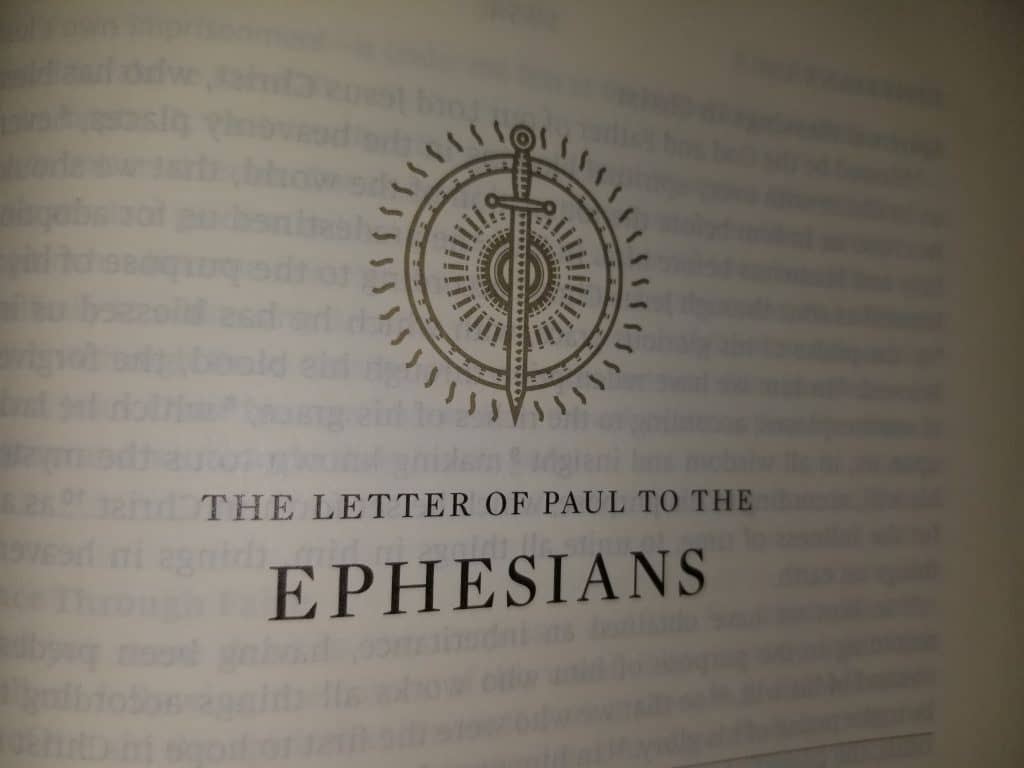⏱️ Estimated Reading Time: 7 min read
On June 12, 1987, President Ronald Reagan stood at Brandenburg Gate at a ceremony commemorating the 750th anniversary of the City of Berlin. In his speech he uttered some of the most famous words every said by an American President, “Mr. Gorvacbev, Tear Down This Wall!” That Wall, which began to come down in November of 1989, tells a deeper story about the nature of humanity: humans are willing to divide themselves over any issue. There is something in our hearts that causes us to divide ourselves and erect walls to protect our identity. This division can be manifested in different ways: social, racial, economic, political, and even theological.
In Ephesians 2:14-18 the Apostle Paul argues against such division, primarily concerning the issue of race. In the context, Paul is speaking about the deep rift between Jews and Gentiles. The division that extends all the way back into the Old Testament. These two ethnic groups, who once hated each other, are now one in Christ. Paul describes how Christ has broken down the wall of separation and has reconciled both groups together. The issue at hand is a hard one but a very pressing issue.
The cross has spiritual implications (Ephesians 2:1-10) and social implications (Ephesians 2:11-22)
In the larger context, Paul shows that the death of Jesus both has spiritual and social implications. In verses 2:1-10 the text demonstrates that we are reconciled to God by faith. This logically leads Paul to discuss the social implications of the death of Jesus in verses 11-22. For this article, I want to focus primarily on verses 14-18 of the text and show a few ways this impact those in Christ.
Jesus Has One People
It’s important to realize when we talk about the social implications of the gospel that we don’t miss the gospel. Paul makes clear that in order to be reconciled to each other that we first must be reconciled to God (v. 13). Those who were far from God are now brought near through the death of Jesus. His substitutionary work subsequently changes the way we view the people of God now. The Bible claims that the two groups (Jews and Gentiles) are now one and Christ has torn down the dividing wall of hostility.
This means that the two groups of Jews and Gentiles in Christ are now one because Christ Himself has torn down the very things that seek to divide them. So practically for us, we may not experience hostile Jew and Gentile tensions, but we do experience division as it is related to race. In Christ, we are no longer divided based on race, culture, or ethnicity; rather we are one in Christ. This means that there is no hostility but peace. The reason why, “He is our peace.” Jesus is the One who creates peace between fallen people like you and me.
One New Humanity
Since Jesus has One New people, He has broken down the wall that divides them. The “wall” in context is referring to the “the law consisting of commands and expressed in regulations.” Paul probably has in mind the identity markers of Israel such as circumcision, food laws, and the Sabbath. The very things that would make a Jew, a Jew. However, in Christ, those identity markers have been torn down! For Paul, his identity was not found in him being Jewish but in Christ.
This means that in Christ, He has redefined the people of God. To be included into the people of God is not a matter of social or ethnic identity. Rather it is a matter of identity in Christ. This means that anything that divides people has to be broken down by Jesus. Paul does not mean that race, ethnicity, or cultural heritage are not important. Actually to the contrary. Even as a follower of Jesus, Paul still maintained some of his Jewish culture. But those things don’t define God’s people. The people of God are a beautiful mosaic of different people, languages, nations, and tribes. And Paul’s point is that Jesus Christ has created One New Humanity. As Diognetus argued, Christians are a “New Race.”
Reconciled into One Body
Paul further argues that reconciliation has happened through the cross of Jesus Christ which has resulted in one body. Reconciliation is the removal of animosity and the acceptance as equals. This one body language could mean the church body or Christ’s bloody body. I personal understand the phrase to mean that through the One body of Jesus (bloody body), He has now reconciled us into One Body (the Church) John Piper says:
That is what God is aiming at in our salvation: a new people (one new man) that is so free from enmity and so united in truth and peace that God himself is there for our joy and for his glory forever. That’s the aim of reconciliation: a place for God to live among us and make himself known and enjoyed forever and ever.
The death of Jesus reconciles us to each other. We are created for each other, and we need each other. We are part of the people of God that does not divide itself over issues of race, ethnicity, or culture. Rather we are reconciled, brought into friendly relationship, with each other by the death of Jesus.
Christ Preached Peace
Paul grounds his argument by saying that Jesus Himself preached peace. I believe this is referring to both peace with God and with each other. Through the death of Jesus, we now have peace with God (Romans 5:1), which results in peace with each other. I’m convinced this is our message. We don’t preach peace for the sake of unity and harmony. We preach peace, as Jesus did, in order to people would experience peace with God that results in peace with each other.
Access to Spirit and Father
Lastly, Paul seeks to prove that these two groups, now made one through Jesus Christ, have access to God by the Spirit. It is by the Spirit that the existence in the realities of the New Humanity can occur. The Spirit Himself provides the access needed to be in proper relationship to God. As one New Humanity brought about by the death of Jesus and applied to us by the Spirit, we can experience complete access to God’s grace, mercy, and peace. We do this in unity together because of the work of Jesus.
Christ has come to break down the spiritual and social Berlin Walls in our lives. Christ died to make us one in Him. His death accomplished more than just a personal relationship with God. It provided a way to have relationship with each other. This text is a call to unity. We must forsake those things that divide us whether they are racial barriers, cultural concerns, or ethnic division. We have to cast of those identity markers that divide the church. Our identity as the people of God is not based on any social, racial, or political identity. Rather it is based on Christ.
Now realize: we are not color blind, and we should not pretend that race doesn’t matter. Rather the church must be on the frontlines of discussing the issue of race by proclaiming peace! And peace is only found in Christ. We must know that God in Christ by means of His Spirit is calling fallen humanity into a New Humanity – the church which is made up of many races, languages, tribes, and people.




